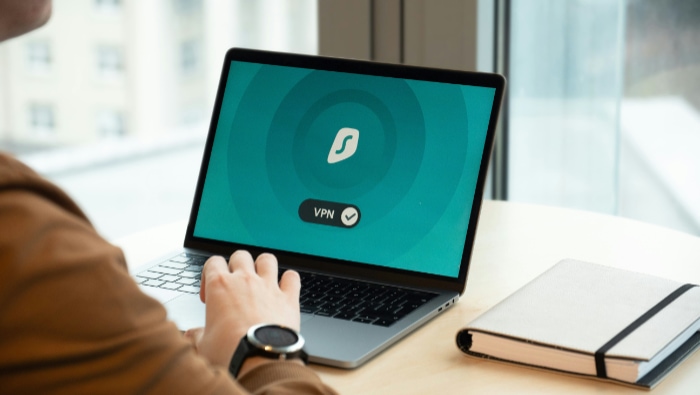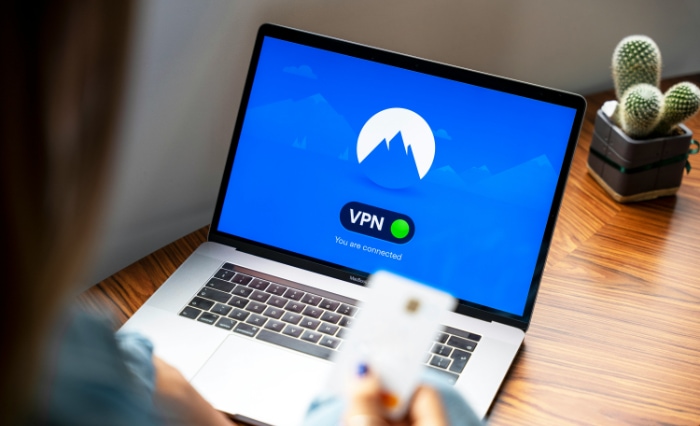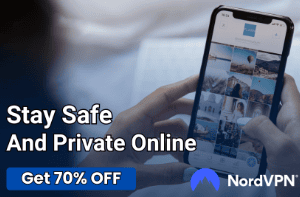Can You Be Tracked With a VPN? The Full Picture

As we dive into the digital age, our online privacy and security have become hot topics. With cyber threats lurking in every corner of the internet, protecting our digital footprint is no longer optional but a necessity.
Enter Virtual Private Networks, or VPNs, heralded as the knights in shining armor for our online lives. These tools promise to shield our internet activities from prying eyes, but the question remains: Can you truly hide your tracks with a VPN?
The VPN Tracking Debate
The conversation around Virtual Private Networks (VPNs) often centers on their ability to enhance online privacy and security. Yet, a critical question arises: can VPNs truly make you invisible on the internet, or is there still a possibility of being tracked?
VPNs and Online Anonymity
VPNs are designed to encrypt your internet traffic and mask your IP address, offering a significant privacy boost. This process makes it difficult for third parties, including internet service providers (ISPs) and websites, to monitor your online activities or determine your location.
However, the degree of anonymity provided by a VPN can vary based on several factors, including the VPN’s own security protocols and policies.
Limitations of VPN Protection
While VPNs are effective at hiding your internet activity from outsiders, they are not foolproof. Several factors can limit their ability to protect your privacy:
- VPN Provider Logs: Some VPN services keep records of user activity. If a VPN provider logs your browsing history, it theoretically could be accessed by authorities or malicious actors under certain conditions.
- Leak Vulnerabilities: Flaws in VPN software can lead to data leaks, such as DNS or IP address leaks, potentially exposing your browsing activity or real location.
- Cookie Tracking: Websites use cookies to track user behavior across the internet. A VPN cannot prevent websites from deploying cookies that track your activities after you leave their site.
The Role of Trust in VPN Use
Choosing a VPN provider is a matter of trust. Users must rely on the provider’s commitment to privacy, including their policies on data logging and their response to legal requests for information.
The transparency and jurisdiction of the VPN provider play crucial roles in its trustworthiness and effectiveness in protecting user privacy.
Enhancing Privacy with a VPN
While a VPN provides a substantial privacy shield, it should be part of a broader privacy strategy. This includes using secure browsers, enabling privacy settings on websites, and being mindful of the digital footprints left behind.
A comprehensive approach to online privacy maximizes the benefits of using a VPN.
Factors That Affect VPN Privacy
The privacy offered by Virtual Private Networks (VPNs) is influenced by a variety of factors, ranging from the technical specifications of the service to the policies of the providers themselves.
VPN Provider Logging Policies
One of the most significant factors affecting VPN privacy is whether the VPN provider keeps logs of user activity. Logging policies vary widely among providers, with some maintaining no logs at all and others recording extensive details about user connections and even browsing histories.
The presence of logs can pose a risk to user privacy, especially if the logs are stored in a jurisdiction with lax privacy protections or aggressive data retention laws.
VPN Server Location
The physical location of VPN servers plays a critical role in privacy. Jurisdictions with strong privacy laws offer better protections against government surveillance and data requests.
Conversely, servers located in countries with mandatory data retention laws or invasive surveillance programs may be less able to guarantee user anonymity. It’s essential to consider the legal framework of the server’s location when choosing a VPN service.
VPN Protocols and Encryption
The strength and type of encryption used by a VPN are pivotal in securing data transmission. Protocols such as OpenVPN, WireGuard, and IKEv2/IPSec offer different balances of speed and security.
High-quality encryption prevents outsiders from deciphering intercepted data, ensuring that even if traffic is captured, it remains unreadable.
User Behavior and Privacy
The way users interact with the internet while connected to a VPN also affects their privacy. Practices such as accepting cookies, using unencrypted services, or logging into personal accounts can still reveal information about the user.
Effective use of a VPN for privacy protection requires mindful online behavior, including the use of secure, privacy-focused browsers and services.
Additional Security Features
Many VPNs offer features beyond the basic VPN service that can impact privacy. These may include:
- Kill Switches: Automatically disconnects the internet connection if the VPN drops, preventing data leaks.
- DNS Leak Protection: Ensures that all DNS requests are routed through the VPN, preventing ISPs from seeing which websites you visit.
- Split Tunneling: Allows users to decide which apps go through the VPN and which use a direct internet connection, offering a balance between speed and security.
Can You Still Be Tracked?

Despite the robust privacy protections offered by Virtual Private Networks (VPNs), certain scenarios and technical limitations can still allow for tracking and compromise user anonymity.
VPN Provider Logging and Data Retention Policies
The privacy assurances of a VPN are significantly influenced by its provider’s logging and data retention policies. Providers that log user activity or retain data for extended periods present a risk, as these logs can be accessed by government agencies or leaked through data breaches.
Choosing a provider with a strict no-logs policy is crucial for minimizing this risk.
DNS Leaks
DNS leaks occur when DNS requests are sent outside the encrypted VPN tunnel, usually to the default DNS servers of the user’s Internet Service Provider (ISP). This leak can expose the websites a user visits to their ISP or any eavesdropper monitoring the network.
Employing a VPN with DNS leak protection and using secure DNS servers can prevent this form of tracking.
IP Address Leaks
IP address leaks can reveal a user’s real location, undermining the anonymity provided by a VPN. Leaks can happen due to flaws in the VPN software or misconfigurations.
Ensuring that the VPN software is up to date and using features like an automatic kill switch can help safeguard against IP leaks.
Cookie Tracking
Websites use cookies to track users across the internet, collecting data on their browsing habits and preferences. A VPN does not prevent cookie-based tracking, as cookies are stored on the user’s device and are not masked by the VPN’s IP address change.
Regularly clearing cookies or using browser extensions that block trackers can help maintain privacy against this type of tracking.
Browser Fingerprinting
Browser fingerprinting collects information about a user’s device and browser settings to create a unique identifier. This method can track users across websites without relying on IP addresses or cookies.
Using privacy-focused browsers or extensions that limit fingerprinting data can reduce the risk of being tracked in this way.
Enhancing Your Privacy with a VPN
While Virtual Private Networks (VPNs) significantly contribute to online privacy, their effectiveness can be maximized with careful selection and use.
Choosing a Reputable VPN Provider
The foundation of VPN-induced privacy is the trustworthiness of the provider. Not all VPNs are created equal, and the choice of provider can have a profound impact on the level of privacy protection.
- No-Logs Policy: Opt for providers that have a strict no-logs policy, ensuring they don’t store any information about your online activities. NordVPN, known for its strong stance on privacy, is a prime example with its strict no-logs policy.
- Strong Encryption: Look for services offering AES-256 encryption, which is currently the gold standard for data protection. NordVPN uses AES-256 encryption to secure your data, providing top-notch security.
- Jurisdiction: Consider the country where the VPN provider is based, as this can affect their obligations to retain user data or cooperate with government requests. NordVPN is based in Panama, a country with no mandatory data retention laws, enhancing its privacy offerings.
- Independent Audits: Providers that undergo regular, independent security audits demonstrate a commitment to transparency and security. NordVPN’s commitment to security is evidenced by its regular independent audits.
Using VPN Features Wisely
Understanding and utilizing the advanced features of a VPN can further enhance privacy:
- Kill Switch: Activate the VPN’s kill switch to automatically cut off internet access if the VPN connection drops, preventing data leaks. NordVPN includes a kill switch feature to safeguard your privacy in case the VPN connection fails.
- Split Tunneling: Use split tunneling to decide which apps should use the VPN connection and which can connect directly to the internet, reducing the risk of data exposure. NordVPN offers split tunneling, allowing users to customize their VPN use for specific apps.
- Secure Protocols: Choose secure VPN protocols like OpenVPN or WireGuard for a balance of speed and security. NordVPN supports multiple protocols, including the fast and secure NordLynx, based on WireGuard technology.
Complementary Privacy Practices
In addition to using a VPN, implementing other privacy practices can provide comprehensive protection:
- Secure Browsers: Use browsers dedicated to privacy, such as Tor or Firefox with privacy settings enabled, to reduce exposure to tracking and fingerprinting.
- Anti-Tracking Extensions: Install browser extensions that block trackers and unwanted ads, further limiting the ability of websites to monitor your activities.
- Regular Updates: Keep your VPN software and all devices updated to protect against vulnerabilities that could expose your data.
Mindful Online Behavior
Your behavior online plays a significant role in privacy:
- Be Cautious with Personal Information: Avoid sharing sensitive personal information on websites and platforms, even when using a VPN.
- Manage Cookies: Regularly clear your cookies or use a browser extension to manage them, preventing websites from tracking your browsing habits over time.
Conclusion
Virtual Private Networks offer a significant layer of privacy and security in our increasingly digital world, yet they are not infallible. The effectiveness of a VPN in safeguarding your online privacy hinges on several factors, including the choice of VPN provider, understanding and utilizing VPN features, and adopting complementary privacy practices.
While VPNs can obscure your digital footprint, making it difficult for third parties to track your online activities, they cannot completely eliminate the possibility of being tracked. Awareness of potential vulnerabilities, such as VPN provider logging policies, DNS and IP leaks, along with proactive measures like regular software updates and careful online behavior, can enhance the privacy protections a VPN offers.
Choosing a VPN service requires careful consideration of the provider’s policies, the jurisdiction under which it operates, and the technical features it offers. A reputable provider with a strict no-logs policy and robust encryption can significantly reduce the risk of privacy breaches.
However, a VPN is just one tool in the privacy toolkit. Integrating it with secure browsers, anti-tracking extensions, and mindful online practices provides a more comprehensive defense against tracking and surveillance.
Digital privacy is a multifaceted challenge that demands a multifaceted response. By staying informed and adopting a layered approach to online privacy, individuals can better protect their digital lives against intrusions and tracking.
VPNs play a crucial role in this strategy, offering a valuable means to enhance online anonymity and security in an era where these commodities are increasingly scarce.



